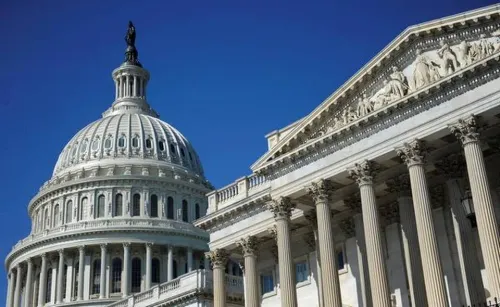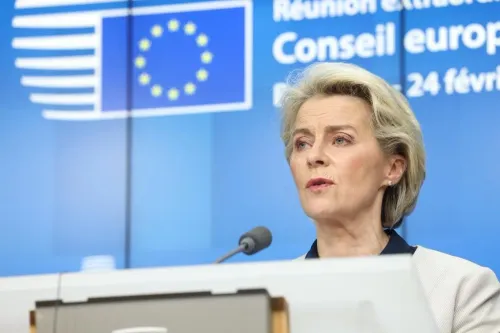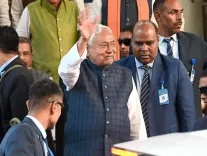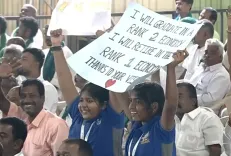Is Bangladesh's Interim Government Truly Neutral Ahead of Elections?
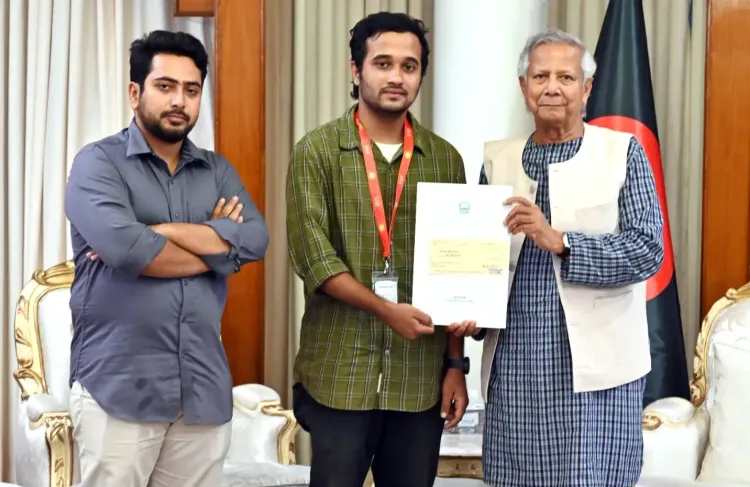
Synopsis
Key Takeaways
- Bangladesh Nationalist Party announces 237 candidates for elections.
- Interim government faces scrutiny over neutrality.
- National Citizen Party formed from July Uprising leaders.
- Allegations of favoritism towards NCP by Chief Advisor.
- Political tensions heighten as elections approach.
Dhaka: The political atmosphere in Bangladesh is highly charged as various parties prepare for the upcoming Jatiya Sangsad elections scheduled for February next year. The Bangladesh Nationalist Party (BNP) has officially declared 237 candidates to compete for 300 parliamentary seats, while Jamaat-e-Islami is still contemplating its candidacy and potential coalitions with other groups.
The National Citizen Party (NCP), however, aims to contest independently across all 300 seats, though it remains open to alliances. The announcement by Asif Mahmud, the student advisor of the interim government, to run for election from a Dhaka constituency has raised questions about the interim government’s claimed neutrality, a point of contention among political factions. This has led to increased speculation — will the upcoming elections be genuinely free and fair?
This year, the interim government’s impartiality has come under fire, particularly with the formation of the new political entity, the NCP, which emerged from the student leaders of the 2024 July Uprising. Established on August 8, 2024, the interim government now includes three student advisors — Nahid Islam, Asif Mahmud, and Mahfuz Alam — who were pivotal figures in the Uprising.
Notably, Nahid Islam resigned his advisory role this past February to take the helm of the NCP, leading to accusations that the interim government is facilitating the rise of a 'King’s Party' instead of creating a transparent election roadmap as demanded by political entities.
Chief Advisor Mohammad Yunus has displayed favoritism towards the NCP, given that it was student leaders who invited him to assume his role in the interim government. This is despite claims made by Asif Mahmud regarding the reservations expressed by the Bangladesh Army Chief concerning student leaders’ invitation of Yunus, highlighted in a video shared by NCP chief (South) Hasnat Abdullah in March.
Even before the NCP’s formation, Yunus’s interim government frequently echoed the sentiments of the July Uprising’s student leaders, implementing measures aligned with their demands. This has been especially evident in the concerted efforts to diminish Sheikh Mujibur Rahman's legacy, including attempts to revoke his title of 'Father of the Nation.' In collaboration with leaders from the July Uprising, the interim government has engaged in historical revisionism regarding the Liberation War, creating a new political narrative regarding a 'new Bangladesh' that allegedly reached 'true liberation' on August 5, 2025, the date when Sheikh Hasina was compelled to leave the country.
Since the NCP's establishment, the interim government has acquiesced to many of its demands before the party's official registration with the Election Commission. For instance, the formal prohibition of the Awami League in May, through an amendment to the 2009 Anti-Terrorism Act, which prevents it from participating in national elections, was implemented only after the NCP mobilized the streets. This ban has been criticized as anti-democratic by international rights groups, as it targets a party rather than individuals accused of war crimes. The prohibition of the League aligns with one of the NCP’s primary goals, which Yunus has conceded, as evidenced by his prior comments suggesting that the decision regarding Awami League's electoral participation rests with the League itself.
In accordance with NCP’s demands, the interim government has prioritized reforms while neglecting the democratic transition in Bangladesh via elections. This has led political parties to accuse the interim government of providing administrative advantages to individuals (referencing Nahid Islam) who departed to form their own party — thus facilitating the emergence of a 'King’s Party' to obstruct the electoral process. The two student advisors, Asif Mahmud and Mahfuz Alam, have faced accusations of being 'NCP loyalists,' prompting political parties to demand their resignations for compromising the expected neutrality of the interim government, which is supposed to ensure a free and fair political transition.
The July Charter is another domain where the interim government revealed its alignment with the student-led party. Following a threat from the NCP to declare the July Charter independently, the interim government introduced the July Declaration on August 5, granting it constitutional recognition, thus fulfilling yet another of the NCP’s objectives. The July National Charter, unveiled on October 17, further incorporated several of the NCP’s demands, which were opposed by the BNP and other major parties. These demands included a public referendum on reforms outlined in the July Charter, encompassing 48 constitutional amendments, and the elimination of dissenting notes during the implementation of the July Charter, moves that have sparked controversy for bypassing legal parliamentary processes and enforcing undemocratic measures, sidelining consensus from the July Charter. Additionally, the Charter has disregarded fundamental constitutional principles rooted in liberation aspirations (nationalism, socialism, democracy, and secularism), closely mirroring the NCP’s agenda to dismantle the 1972 'Mujibist' Constitution.
The implementation of the July Charter and the finalization of the election roadmap in October again raised fresh accusations regarding the interim government’s compromised neutrality. Parties, particularly the BNP and Jamaat, have alleged that the Charter’s implementation process exhibits political bias (favoring the NCP) and have called for the removal of party-affiliated individuals from the interim government, which is meant to function as a caretaker administration before the elections — hinting at student advisors Mahfuz Alam and Asif Mahmud, believed to be NCP loyalists. Following meetings with party representatives and the Chief Advisor to express concerns about compromised neutrality affecting free and fair elections, the upper echelons of the government requested the two student advisors to resign.
Both advisors asked for additional time to decide on their resignations. While Mahfuz Alam, the Information and Broadcasting advisor, has yet to express any interest in running for the upcoming elections, local government advisor Asif Mahmud recently declared his intention to contest and plans to resign from his administrative role beforehand. Although he has not disclosed whether he will run as an independent candidate or through the NCP, Mahmud’s recent announcement further unveils that the interim government was never truly a neutral entity.
Mahmud reaffirmed his earlier statement, asserting that “advisors intending to enter politics should resign after an election announcement… otherwise, the election will be called into question.” With only two months remaining before the national elections, the politically tense environment in Bangladesh, coupled with the unmasked neutrality of the interim government, suggests that the 13th national election will likely be neither inclusive nor free and fair.

